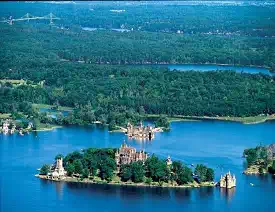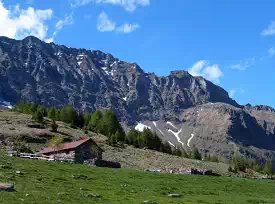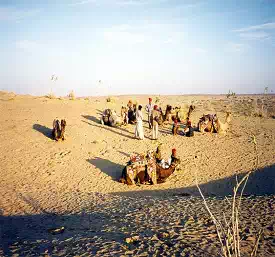Tourism Management - Milieus
Milieu is nothing but the physical, cultural, or social environment in which the people live or which influences people. The milieu includes one’s family, friends, the place of residence, and the surrounding culture.
In the domain of tourism, the milieus are broadly divided into two different categories. Let us see them in detail −
Geographical Milieus
These are the milieus divided according to their terrains.
Rural Area

It is the countryside area or area outside the boundaries of a city. There are less number of settlements, low density of population, and less pollution in the rural area. The pace of life is slower. Nature is more accessible with the beauty of farms and fields, woods, plantations, and wild life. Less infrastructure developments are found in the rural area.
Rural areas offer attractions such as beautiful landscape, vegetation and plantation of specific crops, vineyards, gardens, water bodies and allied sports, farmhouse visits and stays, and roadside flea markets.
Urban Area

It covers cities and developed towns. The urban areas have high density of population and large number of houses and apartments. The cities are more affected by air and noise pollutions. The pace of life is too fast in urban areas. The life and living here boasts of contemporary infrastructure and technology.
Urban areas are usually home to man-made attractions such as Disneyland, theme parks, museums, or vintage sculptures and architecture. They also attract tourists for gourcmet food and local culinary experiences.
Coasts and Beaches

This area offers extra ordinary beauty of Terra Firma, vegetation, and water together. Apart from the above stated features, the coastal areas are high on the list of tourism destinations as they also offer exotic sea food, view of different forms of sea and artistic sand sculptures, and water sports. The coastal areas also provide an opportunity to see the marine life either in their natural habitat or in the marine museum.
Beaches are tempting destinations for relaxation and recreational holidays. According to the World Tourism Organization estimates, coastal areas represent one-third of global tourism income.
Islands

Islands have developed thriving tourism over the last few years. They draw tourist attraction for their breathtaking beauty of land surrounded by water, refreshing breezes, and tranquility. They offer a wide range of water sports like speed-boating, canoeing, snorkeling, and diving. They offer market for authentic pearls, mother-of-pearl ornaments, and wooden handicrafts.
For example, Andaman & Nicobar Islands (India), Madagascar (Africa), Islands of Hawaii, Bora Bora, Tahiti, and Morea (South Pacific Islands) are few examples of highly frequented islands for tourism.
Mountainous Region

Mountains have indisputable tourist potential and they attract tourists of all categories. The adventure tourists visit mountains for their remoteness, difficult access, unbeaten mountain trails, and wilderness. The adventure sport liking tourists visit mountains for climbing, hiking, skiing, mountain biking, and bungee jumping. Some tourists visit mountains to see the beauty of rare flora and fauna, take fresh unpolluted air, and get to know the unique local cultures. The pace of life in mountain regions is low.
For example, Andean Inca trails of Ethiopia, sacred Buddhist sites and in Himalayas.
Desert Region

This region is popular with tourists for its sand dunes, serenity, clean air, flora and fauna, and awesome view of night sky. It also offers desert sports such as quad biking, air balloon rides, and activities such as camel trekking and camping. The deserts also offer introduction or engagement with unique local cultures. The pace and style of life is very different in the desert.
For example, Thar (India), Sahara (Morocco), and Namib Desert (Coastal South Africa) are famous tourist milieus.
Cultural Milieus
Cultural milieus are visited for their heritage, historical, archeological, educational, or adventure importance attached to them. Some of them are also widely known for sports or other entertainment activities.
Historical
This milieu contains the places of historical importance such as sites of ancient wars, civilizations, ruins of sculptures revealing periodic cultures, monuments, castles, forts, and ancient religious sites. The people studying or interested in history, human evolution, manuscripts, cultures, and art around the world find these places attractive. Historical milieus are protected by a country’s law.
Archeological
It is a place where one can find the evidence of historic or prehistoric activity that is recorded by the discipline of archeology. This milieu offers ruins and remains of houses and pottery, inscriptions, weapons, idols, biological remains such as bones and scales which link to the past human activity or presence of a prehistoric animal at the place. The archeological tourist places are bound by law and limitations on the tourist activities laid by the government.
Educational
The sites and places of educational importance contribute a large portion of tourism. A school trip is the simplest form of educational tourism. Most of the top universities around the world impart the study abroad program for their students to provide the students with short study sessions of a few weeks to a full year of cultural and linguistic experience. Tourists attend educational cruises which make the people of common interests come together to acquire knowledge.
Adventure
A place popular for adventure tourism calls for the interest in adventurers. Some tourists have inclination towards trying their capabilities on extreme sports such as bungee jumping, sky diving, mountaineering, hiking, parachuting, surfing, skiing, sailing, and other similar action sports.
Sports
A wide range of sports are sincerely pursued by people, which make a noticeable reason for tourism. National or international sports events such as Olympics, Commonwealth games, FIFA or World Cup Cricket tournaments attract tourists greatly.